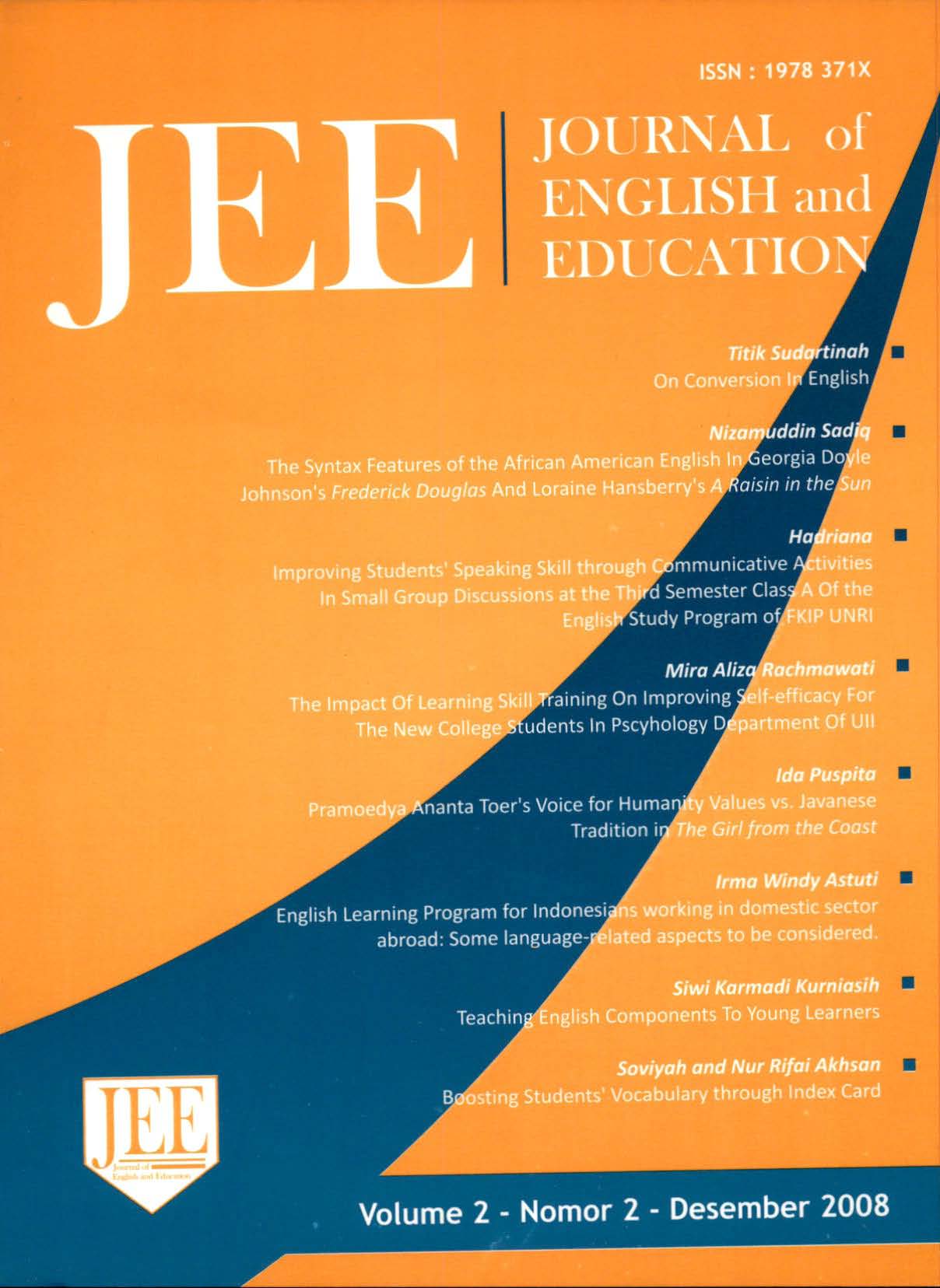Main Article Content
Abstract
Syntax reflects features of a language. One of the American African English features in syntax can be seen in Georgia Doyle Johnson's Frederick Douglas and Loraine Hansberry's A Raisin in the Sun. As it is considered non-standard dialect, the American African English syntax is assumed to have its own characteristic different from the standard American English. This paper is descriptive linguistics rather than a stylistic study as it does not focus on literary style. The data taken was classified into linguistic elements and was" tested to the theories of informal English in general; African American English in particular and Standard American English rules of pronunciation. The research findings were summarized and discussed to conclude the research. The result of the research demonstrates that African American English, a variant of informal English, is different from the rules of Standard American English. In terms of syntax, the African American English style if it is seen from viewpoint of grammar function contradicts with features-6f Standard English: clarity^ brevity and fluency. The rules of clarity are broken by the presence of ellipses, clippings, copulas and tenses; brevity by the presence of unnecessary repetition and additions; and fluency by the presence of combinations of assimilation and clipping. African American English speakers employ polite expressions. The research revealed that polite expressions when greeting people, using please when asking for permission and using titles to show respect is done, particularly with elders. Furthermore, when the speaker is angry, she/he uses a complete name for emphasis.
Keywords
Article Details
Copyright (c) 2016 JEE, Journal of English and Education

This work is licensed under a Creative Commons Attribution-ShareAlike 4.0 International License.
Authors who publish with this journal agree to the following terms:
- Authors retain copyright and grant the journal right of first publication with the work simultaneously licensed under a Creative Commons Attribution-ShareAlike 4.0 International License that allows others to share the work with an acknowledgment of the work's authorship and initial publication in this journal.
- Authors are able to enter into separate, additional contractual arrangements for the non-exclusive distribution of the journal's published version of the work (e.g., post it to an institutional repository or publish it in a book), with an acknowledgment of its initial publication in this journal.
- Authors are permitted and encouraged to post their work online (e.g., in institutional repositories or on their website) prior to and during the submission process, as it can lead to productive exchanges, as well as earlier and greater citation of published work (See The Effect of Open Access).

